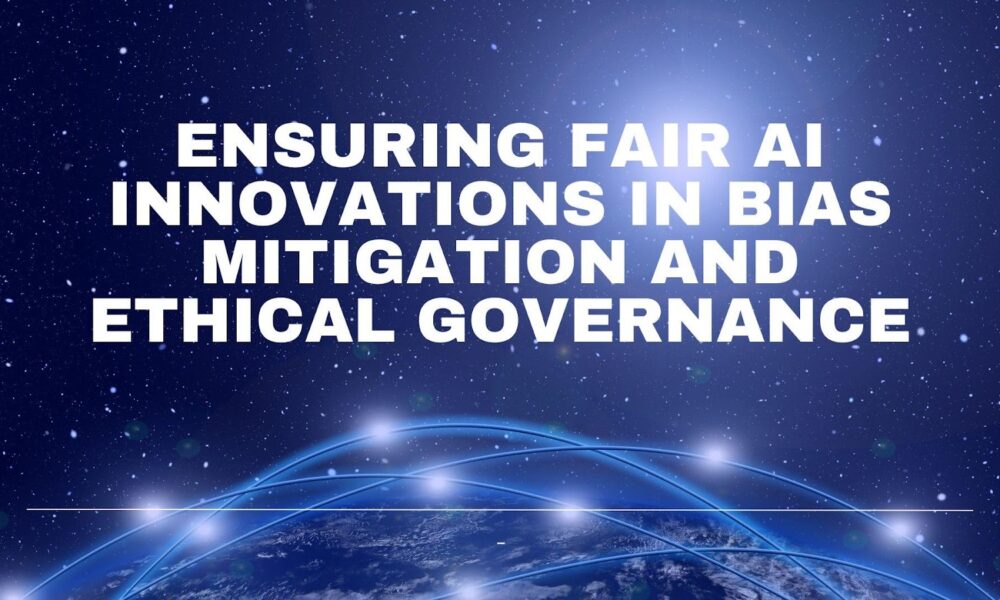Artificial intelligence (AI) is rapidly shaping critical decision-making systems across industries, yet concerns about algorithmic bias persist. Ranjeet Sharma, an expert in AI fairness, explores the latest advancements in mitigating bias within statistical models. His work highlights the integration of technical innovations with ethical frameworks, paving the way for more equitable AI applications.
Understanding Algorithmic Bias
Bias in AI originates from multiple sources, including biased training data, flawed model architecture, and systemic socio-economic inequalities. Statistical models, widely used in hiring, lending, and criminal justice, often reflect and amplify these biases. Traditional approaches to AI development have struggled to eliminate such disparities, necessitating new methodologies that prioritize fairness without compromising model performance.
Recent research has demonstrated that fairness-aware algorithms can mitigate discriminatory outcomes while maintaining accuracy. However, addressing AI bias requires multidisciplinary collaboration between technologists, ethicists, legal experts, and affected communities. Transparent documentation of model limitations and regular bias audits throughout the development lifecycle are becoming industry standards. Additionally, diverse development teams help identify potential harms before deployment, reducing the risk of perpetuating historical inequities in automated decision systems.
Advancements in Bias Detection Frameworks
Recent study has led to the creation of advanced statistical tools designed to detect and measure bias in AI models. These frameworks analyze disparities in predictive accuracy across demographic groups and identify hidden bias patterns that traditional methods overlook. Techniques such as subgroup fairness analysis ensure that AI systems do not disproportionately disadvantage specific populations. Additionally, fairness-aware auditing systems continuously monitor AI performance, allowing organizations to address bias before it influences real-world decisions.
Furthermore, counterfactual fairness methods now evaluate model behavior across simulated scenarios, revealing how decisions would change if only protected attributes were altered. Researchers have also developed causal inference approaches that distinguish between legitimate predictive factors and those perpetuating historical discrimination. Public benchmarks and standardized metrics have emerged to facilitate comparative evaluation of fairness interventions. The field increasingly recognizes that technical solutions alone are insufficient; they must be paired with robust governance frameworks, inclusive stakeholder engagement, and ongoing evaluation throughout the AI lifecycle to effectively combat algorithmic bias.
Bias-Adversarial Augmentation: A Game Changer
A breakthrough innovation in bias mitigation is bias-adversarial augmentation. This technique enhances training datasets by generating synthetic samples that counteract learned biases. When applied to facial recognition and predictive analytics, this method has significantly reduced error rates across diverse demographic groups. By using adversarial learning, AI models can actively adjust their predictions, leading to improved fairness without sacrificing accuracy,these systems incorporate continuous feedback mechanisms to adapt to evolving social norms and expectations.
Fairness-Conscious Model Training
Developers are now incorporating fairness constraints directly into AI model training. By adjusting optimization techniques, these models can balance performance and ethical considerations. Discrimination-aware algorithms prioritize equitable treatment of all user groups, ensuring that AI-driven decisions remain just and unbiased. This approach is particularly effective in sectors such as finance and healthcare, where biased predictions can have far-reaching consequences.
Regulatory Compliance and Ethical AI Governance
With AI regulations evolving globally, organizations must adopt proactive compliance measures to align with fairness standards. Ethical AI governance frameworks emphasize regular audits, transparency in model decision-making, and inclusive stakeholder engagement. Companies implementing these structures have reported substantial improvements in trust and compliance efficiency. Ethical AI governance also mandates cross-functional teams that combine technical expertise with legal and ethical oversight to enhance accountability.
The Role of Intersectional Fairness
Bias in AI is often more complex than individual demographic factors. Intersectional fairness studies reveal that individuals belonging to multiple marginalized groups face compounded discrimination in algorithmic decision-making. Addressing this challenge requires tailored solutions that account for overlapping demographic disadvantages, ensuring that fairness interventions remain inclusive and effective.
The Future of Equitable AI
The convergence of technical innovation and ethical governance is revolutionizing AI fairness. By integrating bias detection tools, adversarial augmentation, fairness-aware training, and regulatory compliance, AI systems can achieve more equitable outcomes. The growing emphasis on AI fairness ensures that future innovations align with social justice principles while maintaining technological advancement. As Ranjeet Sharma concludes, the future of AI depends on building systems that are both intelligent and just, ensuring fairness for all users.












